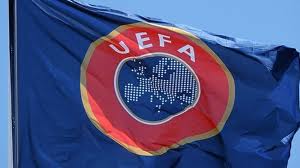September 8 – UEFA has released its Circular Economy Guidelines in conjunction with Zero Waste Week and which are part of UEFA’s Football Sustainability Strategy 2030.
The Circular Economy guidelines are one of 11 policies in the overall sustainability strategy.
UEFA’s definition of circular economy refers to the optimisation of the consumption and life cycle of products, most notably food, packaging and branded items throughout UEFA operations and events.
By 2030 UEFA aims to have fully embeded the so-called ‘4R approach’ – built around reducing, reusing, recycling, and recovering – in all operations to minimise the impact of football on the environment and drive resource efficiency and cost savings.
The guidelines include three sections: an introduction to the circular economy concept and the 4R framework; best practice and factsheets in the food and beverage area by various football stakeholders; and a look forward to futuer circular economy focus areas – energy and water, apparel and football equipment, and event materials.
Circular economy practices were tested last season with several clubs in the UEFA Champions League, which led to the creation of a database of best practices and the formation of a consultation group among clubs
Michele Uva, UEFA football & social responsibility director said: “The circular economy is an important pillar of UEFA’s Football Sustainability Strategy 2030. Collaborating with PepsiCo and several European clubs to assess aspects of circularity in food and beverage was instrumental in the development of the UEFA guidelines. I look forward to seeing these guidelines translated into tangible actions within UEFA, across UEFA events and collaboratively across European football to help us achieve our aspirational targets around zero plastic waste and food waste.”
Contact the writer of this story at moc.l1746460895labto1746460895ofdlr1746460895owedi1746460895sni@n1746460895osloh1746460895cin.l1746460895uap1746460895

